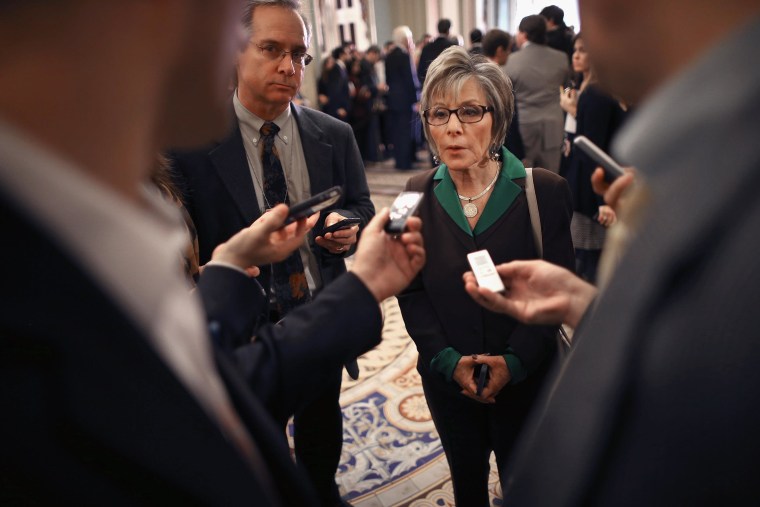The announced retirement of Sen. Barbara Boxer is setting off speculation about whether California would replace her with a Latino.
Boxer, a Democrat, announced she would not run for re-election in 2016, which already is setting off a scramble for names of who might take her place. Boxer won the seat in 1992. Her fellow Californian in the chamber, Sen. Dianne Feinstein, was elected the same year.
Former Los Angeles Mayor Antonio Villaraigosa has often been named as a potential candidate waiting in the wings for one of the seats to open up. Rep. Xavier Becerra, the highest ranking Hispanic Democrat in the U.S. House, also is considered a potential contender, having achieved a leadership position as the chairman of the House Democratic Caucus and now heading into his 12th two-year term in the House.
Also on the tip of the tongues of politics watchers: newly elected California Secretary of State Alex Padilla, a Democrat sworn in on Monday, the first Latino to hold the job.
“We have the largest Latino population of any state. Over a third is Latino,” said Arturo Vargas, executive director of the Los Angeles-based National Association of Latino Elected and Appointed Officials, a bipartisan group. “The U.S. senators from California have the largest constituency of any state in terms of sheer numbers of Latinos,” about 14 million. Padilla is this year's president of NALEO.
A key will be having enough name recognition to run statewide, still a challenge for many Latinos, who must garner support outside the community. “Latinos (voters) alone cannot elect somebody to statewide office, but you can’t get elected without Latino support,” Vargas said.
Other potential contenders are Democratic Rep. Loretta Sanchez, who has been in Congress since 1997 and has been considered as interested in the Senate seat. Her years representing an Orange County district would bring the Southern California experience to the state's Senate delegation that many have sought.
The name of her House colleague, Democratic Rep. Tony Cardenas, also gets mention, although he is only in his second term and has recently won some key committee posts in the House that may be hard for him to give up. He also is now steering the Congressional Hispanic Caucus’ political action committee, BOLDPAC.
“I have recently taken on two major challenges, running the CHC BOLD PAC and serving Los Angeles as our voice on the Energy and Commerce Committee,” Cardenas said. “Right now, I want to make certain I am serving the people of California and the (San Fernando) Valley to the best of my ability in the U.S. House.”
Former Labor Secretary Hilda Solis recently won election to Los Angeles County Board of Governors, but she left Washington in 2013 and its unclear whether she'd want to return.
Vargas also named Gloria Molina, who just retired from the Los Angeles County Board of Supervisors and who has jumped into the race for Los Angeles City Council.
On the Republican side, Vargas named Abel Maldonado, who had been appointed lieutenant governor and defeated in a subsequent election bid for the job. He withdrew from a bid for governor last year. “It’s tough for a Republican to run, any Republican” statewide in California, Vargas said.
A number of other non-Latinos also are considered potential contenders, such as Lt. Gov. Gavin Newsom.
“It’s a wild card,” Vargas said. “I think this is the opportunity many people have been looking for. Both of the U.S. Senate seats in California have had incumbents now for several election cycles and in the meantime Latinos have been able to see leaders of our community develop and grow in stature and experience, so I think the field will be pretty strong.”
